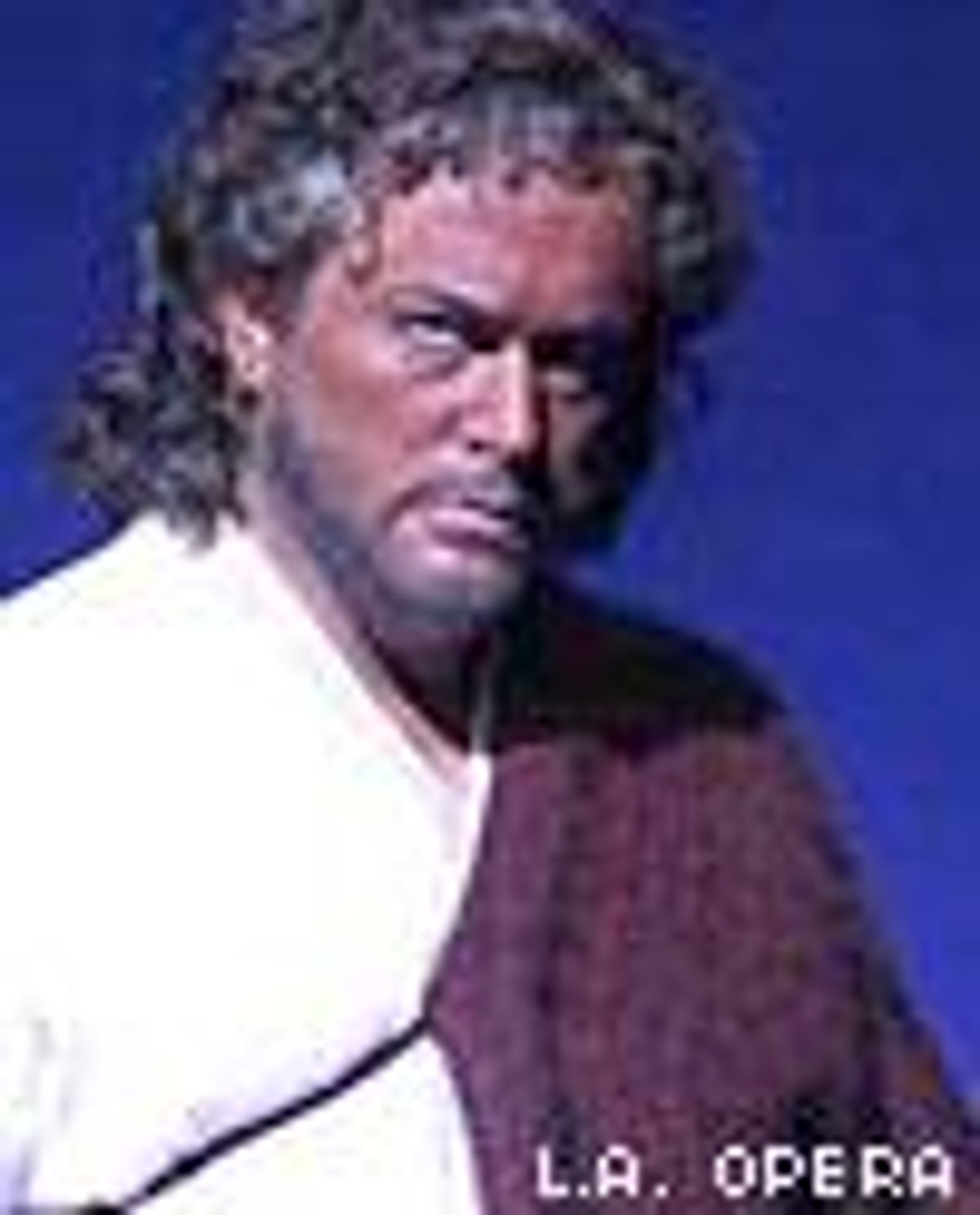Giuseppe Verdi
always had a great affinity for and love of
Shakespeare's works. It's no wonder, then, that
the two masterpieces of his late maturity should have
derived their inspiration from the bard. Otello
(based on Shakespeare's Othello) premiered
February 5, 1887, and was hailed as a masterpiece from
the very start. And even hearing the score over a
century later, one can see why. Not only is it a
summation of everything in Verdi's output that had
come before (he would write only one more opera after
this one), it distills all the changes in musical
language that had evolved in the 19th century, from Rossini
to Wagner, while at the same time firmly being a work
that only Verdi could have written.
A great
performance of Otello (either the original play or
Verdi's opera) should be an experience that
leaves the viewer or listener emotionally drained; it
should be a transforming evening at the theatre; it
should be exciting, heartbreaking, and turbulent. It should.
Unfortunately, the Los Angeles Opera's recent rendition at
the Music Center's Dorothy Chandler Pavilion
was none of these things.
The fault lay
mainly with tenor Ian Storey's weak portrayal of the
title character and John Cox's tepid direction.
Otello's opening lines of triumph, which come
at a dramatic climax of a musical sea storm, were
delivered by Storey in a muffled half-voice, making the
scene, usually a hair-raising one, almost superfluous.
Added to this, the fact that Storey couldn't be
seen onstage (and wasn't, fully, until his second
entrance later in the act) resulted in what is
probably the most powerful opening scene in all
operatic literature becoming a dull exercise in the art of
wasted chances. The love duet at the end of the act was also
unimaginatively staged -- this time on a bare, oval-shaped
platform (all stage scenery and props from the earlier
part of the act having been removed). The two
principals barely looked at each other for the
duration of the scene. Only Verdi's glorious music
could have saved the day -- and it almost did, but not
quite.
Although
Storey's voice improved during the course of the
performance, his acting never did, and Otello, in his
hands, came across as a rather clumsy, one-dimensional
hero. Cristina Gallardo-Domas's Desdemona was
also a great disappointment. About seven or eight years ago
this lovely Chilean soprano released a delightful CD
of operatic arias that revealed a voice that was
sweet, sensual, and oddly powerful. In the intervening
time, sadly, her voice has developed a pronounced and highly
audible beat, which will no doubt lead to greater
problems with vibrato as her career continues. In any
case, her performance here was less than stunning, and
though she got through her big solo scene in the fourth act
admirably, one longed for a Desdemona with the floating
vocal line of a Renata Tebaldi or Renee Fleming.
The only
performance that proved to be truly exceptional was Mark
Delavan's Iago. Delavan captured the malignancy and
strange charm of the character while also providing a
stunningly rich baritone voice that was hardly equaled
by anyone else in the cast. I have heard that he is to be
our Wotan in the L.A. Opera's production of
Wagner's Ring next year, and I greatly
look forward to hearing him.
As usual,
conductor James Conlon was a hero of the podium, a man who
clearly knows this score backward and forward and delivers
every punch just where and when it should be
delivered. If only what was happening onstage matched
what was going on in the pit, we might have had a truly
memorable performance.


















































































